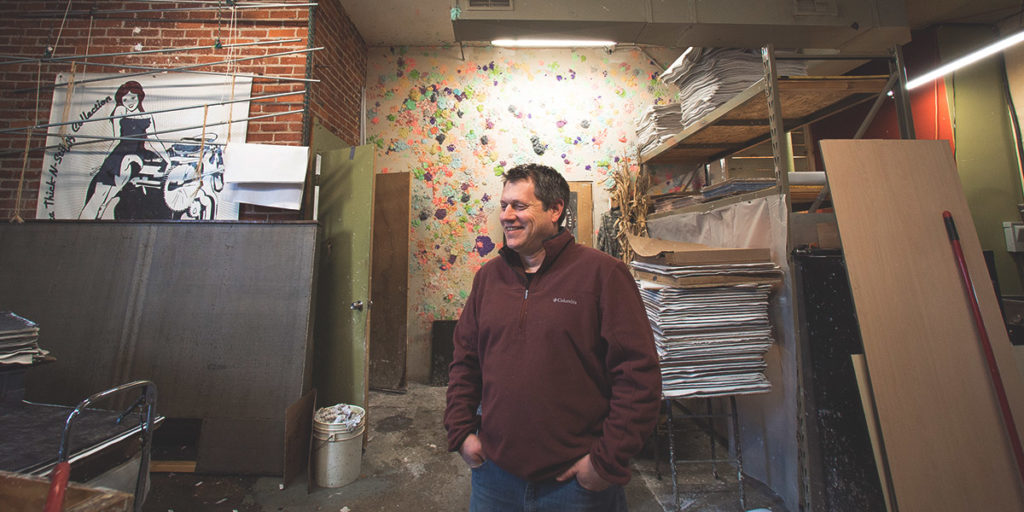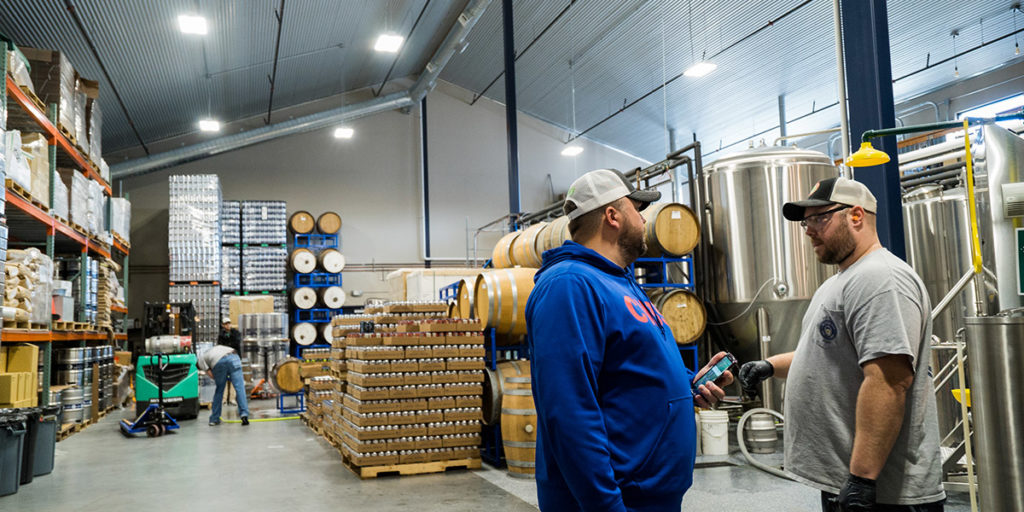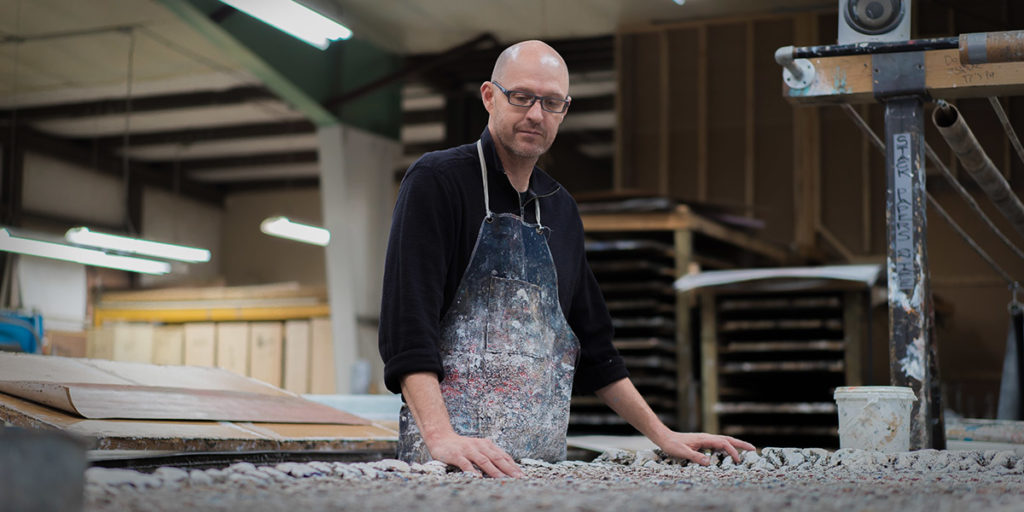
“Well, my mom would say it started when I was 10 or 12 years old,” said Christopher James with a smile. “I made up little business cards and I’d offer to kill bees and wasps with my bare hands.”
Back then his clients were mostly his neighbors, and his job was a way to keep busy during the summer, but it was his start in the business world.
Christopher said he always liked working with his hands, he liked to think outside the box, surprise people and keep busy. Which is probably why he’s been able to keep the door to Porridge Papers open for the past 23 years.
Paper was never on his radar, but it was a hobby that turned into a business that turned into a career. And now, Christopher can’t imagine a day without it.
During college, he studied architecture. His father was an architect and the skill and precision of the craft came easily to Christopher. But what didn’t come easily to him was the rigidity of school.
To pay for college he worked at an art shop where one of the perks of his job was a discount. Christopher would load up on all sorts of art supplies and try them out after work. He tried his hand at painting and sketching, but wasn’t very good at any form of art…until it came to paper making. The process was long, but simple and it allowed him to add in his own creative spin once he mastered the basics.
Soak, blend, strain, press, dry and repeat. This is how paper was made and it didn’t take long before Christopher was hooked.
He started selling paper at the art shop, which led him to craft shows, which eventually led him to dropping out of school, phasing out of work and making paper full time.
A lot of people considered his paper making a hobby job, and Christopher admits that’s probably what it was. But as a single guy with minimal expenses, he could afford to make paper his full-time gig. He found a spot in the Haymarket where he could run a business and live in the same space. It was exactly what he needed, until he realized he was working 24 hours a day, seven days a week and was staring burnout in the face.
He wanted to quit and he needed a break.
It was around this same time that Christopher got married and he and his wife moved to New Mexico where his wife attended graduate school. The move gave Christopher some breathing room. He spent time trying to figure out his next step and he tried a few different jobs but nothing stuck. He eventually started working at a company that had its roots in paper making and he started to feel like himself again.
One day he received a call from a previous client who needed paper for a project. He took on the job and then slowly continued to build his business back up. Christopher said he didn’t realize how much he missed the paper making process and having it back in his life gave him all kinds of new ideas. And as his confidence grew, so did his business.
After nine years in New Mexico, Christopher and his wife decided to move back to Lincoln. They had family nearby, access to good schools and Christopher knew it would be a great community to replant his business.
With fingers crossed, Christopher moved his family to Lincoln. They lived with family, looked for a house and started renovating his new work space. Coming back to Lincoln was the right thing to do, for this family and his business, but it wasn’t without its own set of challenges.
He had to re-educate the community about what Porridge Papers was about, he had to redefine his business for himself and pivot as his business grew and changed.
Christopher said he’s gone from having as many as 12 employees to one or two. He’s had 2.5 million piece projects and others that require a single sheet of paper. He’s added letterpress printing and experimented with offering paper making classes and even selling retail goods, but Christopher said he always comes back to paper.
He likes that Porridge Papers is a custom paper mill, and that’s the way he wants to keep it. Christopher said he does his best work when he has the opportunity to be creative, to give his clients great ideas and really bring out their personality with paper. This means that he’s made paper out of blue jeans, phone books and beer hops, blueberry scented paper and glitter-infused invitations.
He loves getting calls that start with the phrase, ‘This might sound strange, but could you make…’ And his classic response is, ‘We can definitely try.’
While he has 23 years of paper making under his belt, Christopher said so much of his job is about solving problems, winging it, failing, learning from failure and trying something new again. He’s not perfect and he doesn’t claim to be, but he’s also fiercely determined and isn’t willing to give up.
“There are a lot of people who never thought this would go anywhere,” he said. “But I’m still here I’m still making a living, I’m still supporting my family and in my mind that counts a lot.”
Christopher’s story has been about letting his passion write his story. It wasn’t always practical or easy, but it’s what he loved. He figured out how to turn his hobby into a career and a life that he’s proud to call his own.

